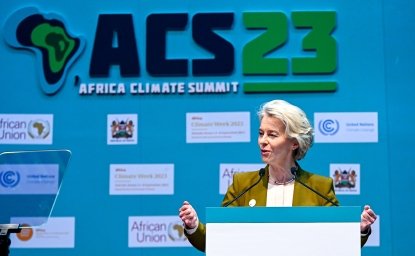Can We Price Carbon?


Related Event
A political science analysis of the feasibility and sustainability of carbon pricing, drawing from North American, European, and Asian case studies.
Climate change, economists generally agree, is best addressed by putting a price on the carbon content of fossil fuels -- by taxing carbon, by cap-and-trade systems, or other methods. But what about the politics of carbon pricing? Do political realities render carbon pricing impracticable? In this book, Barry Rabe offers the first major political science analysis of the feasibility and sustainability of carbon pricing, drawing upon a series of real-world attempts to price carbon over the last two decades in North America, Europe, and Asia.
Rabe asks whether these policies have proven politically viable and, if adopted, whether they survive political shifts and managerial challenges over time. The entire policy life cycle is examined, from adoption through advanced implementation, on a range of pricing policies including not only carbon taxes and cap-and-trade but also such alternative methods as taxing fossil fuel extraction. These case studies, Rabe argues, show that despite the considerable political difficulties, carbon pricing can be both feasible and durable.
Author

Arthur Thurnau Professor of Environmental Policy and the J. Ira and Nicki Harris Family Professor at the Gerald R. Ford School of Public Policy at the University of Michigan

Canada Institute
The mission of the Wilson Center's Canada Institute is to raise the level of knowledge of Canada in the United States, particularly within the Washington, DC policy community. Research projects, initiatives, podcasts, and publications cover contemporary Canada, US-Canadian relations, North American political economy, and Canada's global role as it intersects with US national interests. Read more

Explore More
Browse Insights & Analysis
Swathi Veeravalli on the Importance of Climate Security for US Strategic Interests

The 2024 Montreal Climate Security Summit: Four Takeaways

